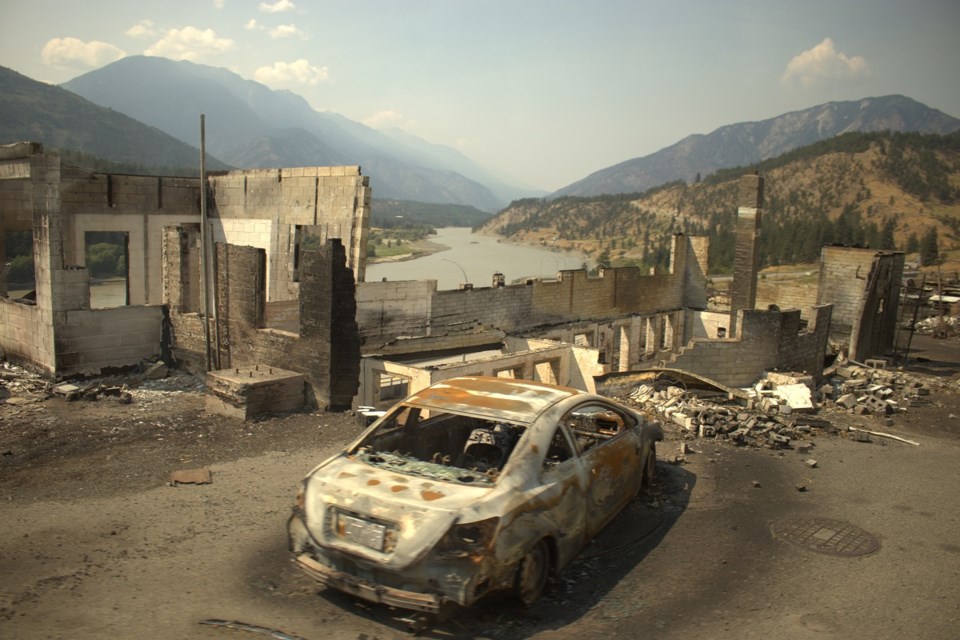A woman from Lytton, B.C., has filed a class action lawsuit on behalf of the town’s residents, claiming two railway companies “caused or contributed” to a wildfire that burned down the village.
In a notice of civil claim filed today (Aug. 18) in a BC Supreme Court, Carel Moiseiwitsch claims the fire was caused by heat and/or sparks from a freight train owned by CP Rail but operated by CN employees on CN tracks.
“The Lytton Fire was not caused by the Forest Fire or the Boston Bar Fire or a lightning strike,” claims the court document. “The burn area of the Lytton Fire does not overlap with the burn area of the Forest Fire or the Boston Bar Fire.”
Fire devastated Lytton on June 30, just a day after a powerful heat wave set an all-time Canadian heat record in the town, of 49.6°C. Those tinder-dry conditions and high winds quickly consumed 90 per cent of the town, sending residents fleeing for their lives and killing two people.
According to the court document, the fire destroyed Moiseiwitsch’s home and business, and she was almost killed while trying to escape. The lawsuit describes how several First Nations also suffered property damage due to the fire.
“We believe that the evidence of eyewitnesses, train schedules and the burn pattern left behind by the fire converge with the facts set out in the notice of civil claim,” Moiseiwitsch’s lawyer, Jason Gratl, tells Glacier Media.
The lawsuit claims both CN and CP contributed to the fire through several negligent acts, including operating a train in unsafe conditions, with unsafe loads and at dangerous speeds. Among other claims, Moiseiwitsch says the rail companies failed to:
- douse the area around the tracks with water;
- post an employee to watch for smoke or fire;
- maintain and deploy extinguishing equipment near the fire, and
- communicate a fire plan to employees.
The lawsuit says trains have been starting fires in Canada and B.C. for 140 years, and that both companies “knew or ought to have known of the high heat and high wind conditions, and that, given all the circumstances, it was unsafe to run trains through Lytton on or about June 30, 2021.”
Describing CN and CP’s actions as “outrageous," “reckless,” and “entirely without care,” Moiseiwitsch is seeking a court order to act as a representative in the proposed class action suit. If the case is heard, the notice of civil claim states Moiseiwitsch and anyone else joining the class action are entitled to several categories of damages.
CN and CP have 21 days to respond to the lawsuit. None of the claims have been proven in court.



